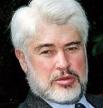Transformation trumps everything. That seems to be the underlying rationale for planned amendments to legislation governing schooling in South Africa.
One of the key proposals is to remove the right of school governing bodies (SGBs) to play a role in the appointment of school principals, deputy principals, and heads of departments. SGBs are currently entitled to make recommendations. However, the proposed amendments provide that the selection and appointment of teachers in senior posts will be "the sole responsibility" of the head of the provincial education department.
Giving the provincial head final authority over the admission of pupils to public schools, as well as the power to approve such schools' language policies, are among the other proposals in the Basic Education Laws Amendment Bill, which is open for public comment until 10th November.
According to a memorandum attached to the bill, the vesting of "sole responsibility" for key appointments in the provincial education department is "necessitated by the requirements of transformation". Another reason given is the importance of leadership and management in "turning a school around".
The memorandum says that the appointment of teachers relies to a large extent on the existence of a functional SGB. However, it argues, many public schools, especially in deep rural areas, do not have functional SGBs.
This may be true. But it is no argument for removing the powers of SGBs that do operate effectively, which is the case in a great many public schools. The Federation of Governing Bodies of South African Schools (Fedsas) has labelled the proposed legislation as an attempt by the African National Congress (ANC) to "capture" public schools. The federation, representing more than 2 000 public schools, also argues that the proposals amount to a move away from "public education to state education".
Whittling away the powers of SGBs will have the consequence that fewer and fewer people will wish to serve on these bodies, more than half of whose members must be parents. This will mean less parental involvement. Yet only three years ago Angie Motshekga, minister of basic education, was bewailing "low parent participation" in schools as this reduced "the sense of accountability to the community". Two years ago, Panyaza Lesufi, member of the executive council for education in Gauteng, said that SGBs are "the best representatives of our children's education needs."
Even though final appointment of senior teachers and principals was always in the hands of the department, the right of SGBs to make recommendations is an important countervailing force to exclusive departmental power. Removing that right strengthens the power of the South African Democratic Teachers Union (Sadtu), which Mr Lesufi said some time ago had taken "control" of his department. A probe commissioned by Mr Lesufi found that there was truth in allegations that teaching jobs were being bought and sold.
According to the report of the "jobs for cash" investigation published last year, Sadtu is in de facto control of six provinces. Strengthening departmental power to appoint teachers at the expense of SGBs is tantamount to strengthening the power of Sadtu. Why would the ANC be doing this? One reason is no doubt to retain the support of teachers in the general and provincial elections due in 2019.
But another reason for the proposed legislation is the ANC's ideological instincts. These include extending bureaucratic control wherever it can. They also include the desire to undermine whatever it does not control, especially institutions such as former model C schools established before it came to power. Undermining such schools, a great many of which are successful from both an educational and a racial mixing viewpoint, risks chasing parents and their children to independent schools.
It also does nothing to help South Africa's 24 000 public schools, the great majority of which fail to do a decent job of educating the children enrolled in them. The envious ANC would rather level down than level up. It is, after all, much easier to destroy what others have built than to build something yourself. The tragedy is that, in this case, schoolchildren will be the victims.
* John Kane-Berman is a policy fellow at the IRR, a think-tank that promotes political and economic freedom.

